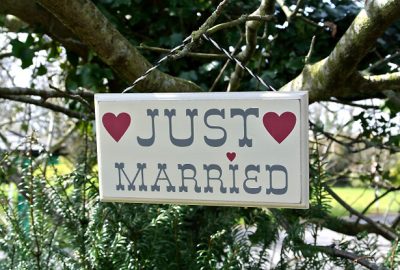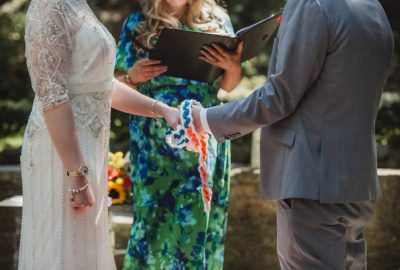
Who knew marriage had so many bureaucratic hoops to jump through? Well, you’re in luck. To help you get started with the state requirements to get married in Ireland, we’ve scoured the General Register Office website and found all the bits and pieces that you need. Ready?
In order for your marriage to be valid:
You must obey 3 conditions
- You must have the capacity to marry each other (You need to be ABLE to get married)
- You must freely consent to the marriage (You have to WANT to get married)
- You must observe the marriage notification process as required by the laws of Ireland (You must give 3 months’ notice)
Let’s look at these in a bit more detail:
1. You must have the capacity to marry each other
This basically means that you need to be able to marry each other. In Ireland, that means:
- You must be over the age of 18 (or under 18 with the permission of the Circuit Family Court or the High Court).
- You must not be currently married or in a civil partnership (if divorced you need to provide an Absolute Divorce Decree. If widowed, you must provide a Death Certificate for your late spouse)
- You must not be within the prohibited degrees of affinity (ie closely related. The GRO has an extensive list of prohibited relationships for marriage)
2. You must freely consent to the marriage
Of course this means that you have to WANT to marry your husband or wife to be However, you must not be incapable of giving consent due to intellectual disability or mental illness (if in doubt, the registry office may request a medical report to confirm ability to give consent).
3. You must observe the marriage notification process as required by the laws of Ireland
This is the part of getting married that some couples dread, because of all the red tape. But don’t panic! Here’s what you need to do:
- Make an appointment with your local Registrar to give your 3 months’ notice. It is a good idea to give yourselves LOTS of time to make this appointment, as the earlier you ring to book, the better your chances of getting an appointment.
- Bring ALL your paperwork! This includes:
- €200 notification fee
- Passports for both of you
- Birth Certificates for both of you
- Divorce decrees or civil partnership dissolutions (if applicable)
- Death certificates of previous spouse / civil partner (if applicable)
- PPS numbers for both of you
- You will need to tell the Registrar the information about your marriage, including:
- Your intended date
- Whether you will be having a civil or religious ceremony
- The names and dates of birth of your witnesses
- Details of who will be marrying you, and where
- You will also have to sign a Declaration of No Impediment to say that neither of you is aware of any lawful impediment to your marriage (based on the other 2 requirements above)
What happens after our notification meeting?
If the Registrar is happy that all your documents are in order and you’ve provided all the right information, you will be issued with a Marriage Registration Form. Guard this form with your life – it is the authorisation giving your marriage the go-ahead your marriage won’t be legally registered without it! On the day of your ceremony, give the form to your priest, religious solemniser or registrar.
Image Credit:


